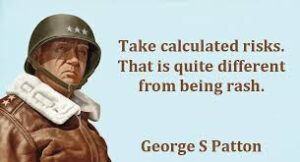Internet users are inundated with info every single day. Each minute, there are approximately 98,000 tweets, 160 million emails sent, and 600 videos uploaded to YouTube.
To make critical decisions in life, one requires facts. People crave a way to sort through all the information to find valuable content, they can use.
The Fake News “Infodemic”
Since anyone has the ability to publish information on the internet, false / fake news can be generated very easily and it travels fast and can have dire consequences.
World desperately needs a way to discern truth from fiction in our news and public, political and economic discussions.
World’s largest social media networks (companies such as Facebook, Twitter, and others) have come under fire for the part they play in spreading fake news.
Artificial intelligence (AI)
Artificial Intelligence is spearheading the way towards eliminating fake and toxic news.
Technology and the Artificial intelligence (AI) tools are now on the job to combat the spread of misinformation on the internet and social platforms.
AI algorithms use natural language processing to understand and analyse text.
The AI models label the credibility of the source of the content with a rating of low, medium, high, and an article as reliable or unreliable based on comparisons of similar content from more than 100,000 sources.
The algorithms are checking not only content, but metadata and images too.
The algorithms also check the toxicity of content and can block out profane and obscene content.
Man Machine Interface
While AI is able to analyse the enormous amounts of info generated daily on a scale that is impossible for humans, ultimately, humans need to be part of the process of fact-checking to ensure credibility.
Any solution for the purpose of verifying the veracity of news, images, and social discussions will have to to combine artificial intelligence and human intelligence.
Machines are adept at quickly analysing volumes of content. They can flag questionable items for review by a human fact-checker as well as become smarter over time with feedback from results.
Future Trajectory
AI-based fact checkers can be useful but they still are not fool proof.
As the pursuit of fighting fake news becomes more sophisticated, technology leaders will continue to work to find even better ways to sort out fact from fiction.
Deep learning can help automate and further refine the AI Tools that help in fake news and disinformation detection.
Bottom Line
It is still a Spy versus Spy game
Question
Will this problem be ever solved?
Suggestions and value additions are most welcome
For regular updates, please register here
Subscribe
References
https://www.forbes.com/sites/bernardmarr/2021/01/25/fake-news-is-rampant-here-is-how-artificial-intelligence-can-help/?sh=442daa9b48e4
https://www.mygreatlearning.com/blog/role-of-ai-in-preventing-fake-news-weekly-guide/
https://www.verdict.co.uk/social-media-hate-fake-news/



